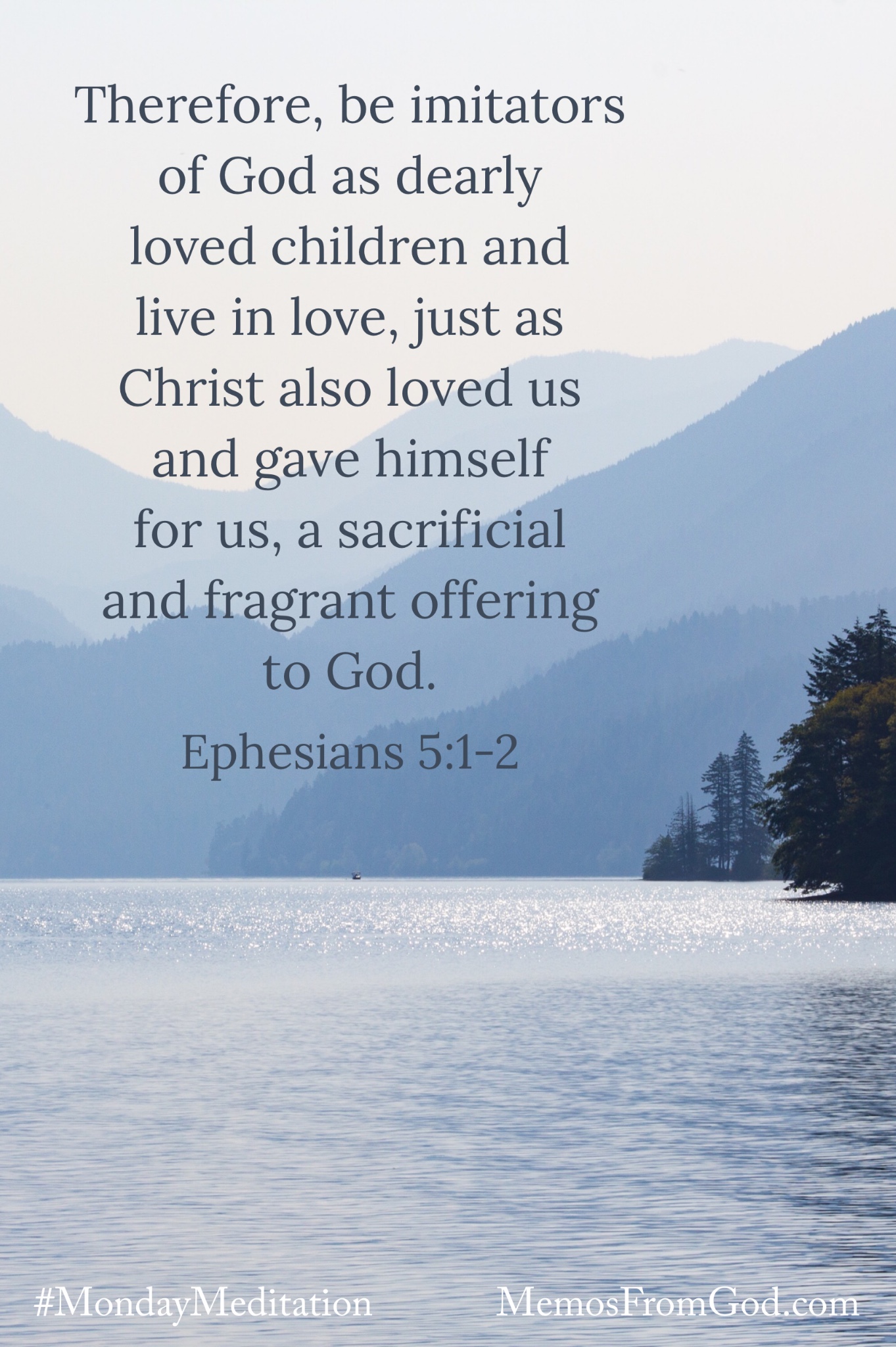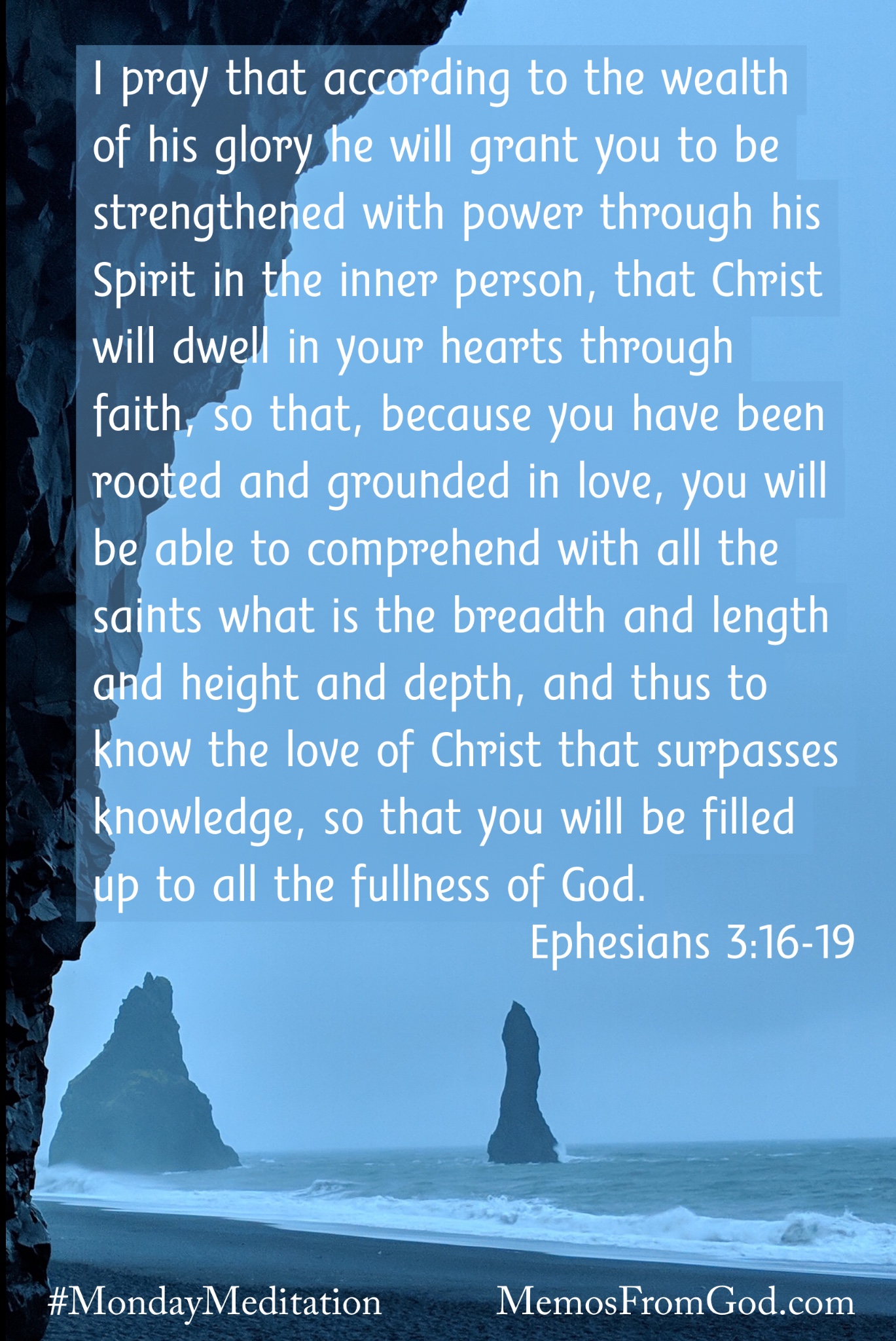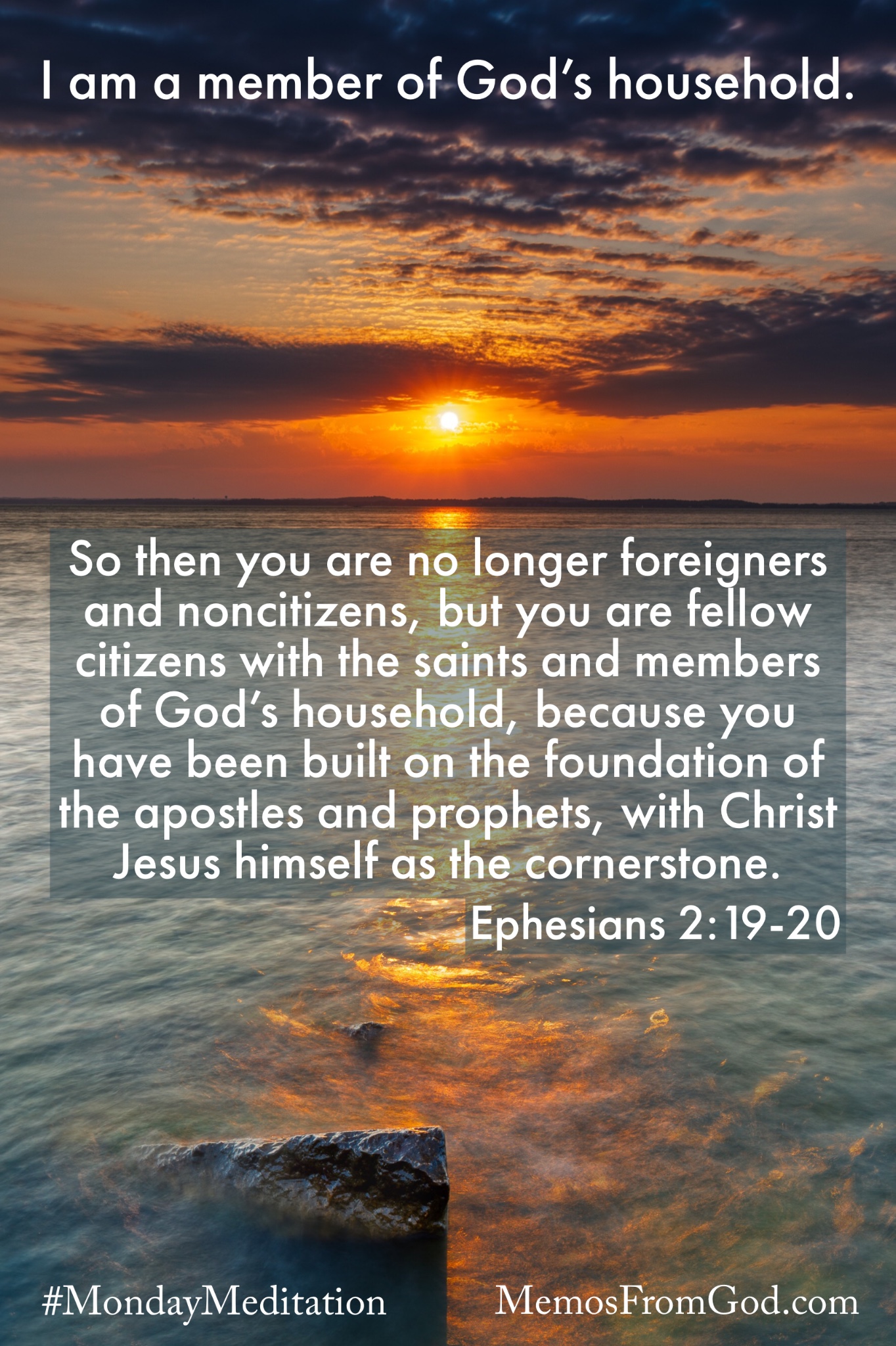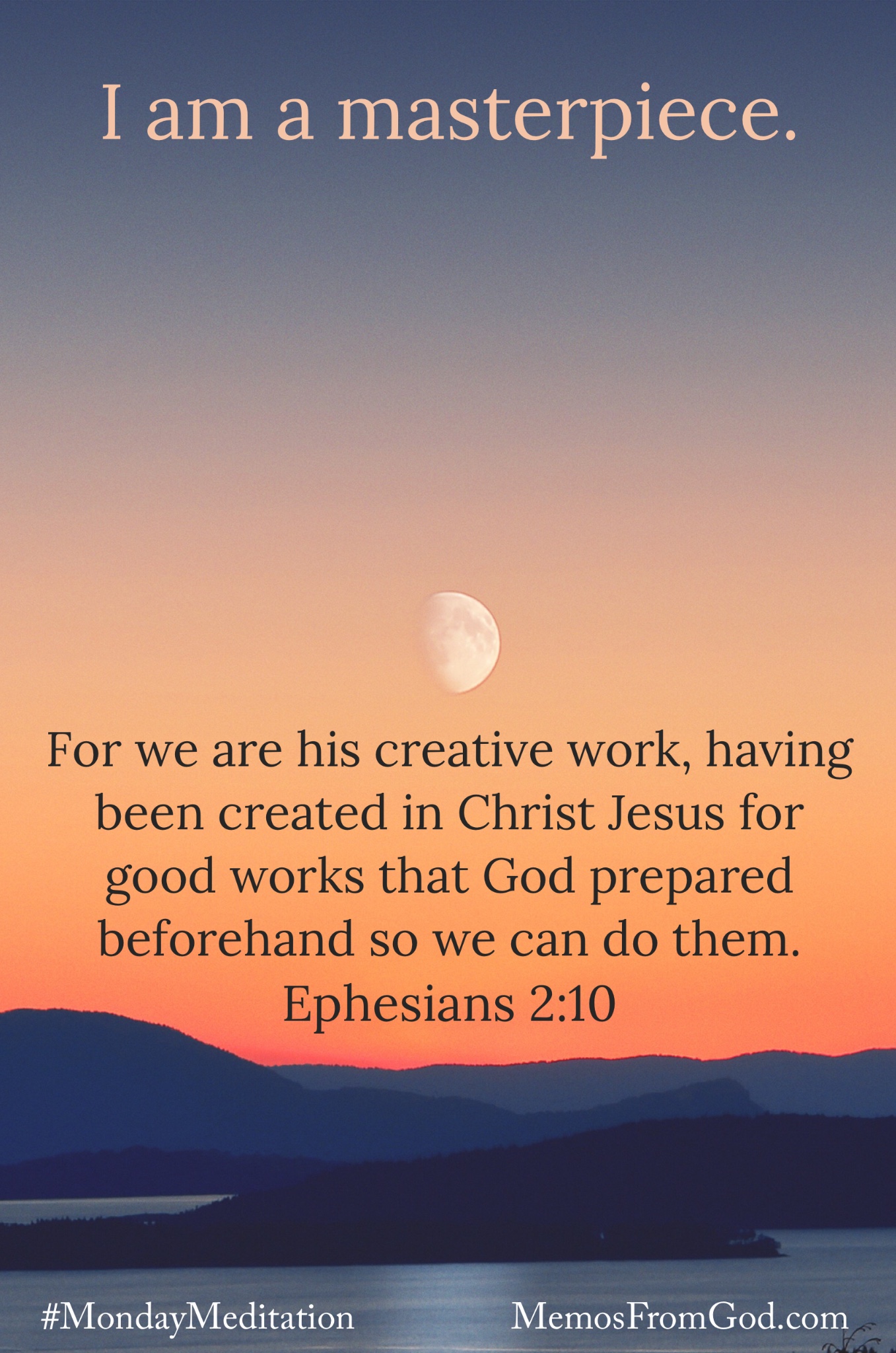

Attempting to Understand the Bible





Paul spends much of Ephesians telling us how to live in a way that is pleasing to God. In Ephesians 4, he calls us to unity and holiness, and to the understanding that even though we are all different and have different purposes, we are all part of one body under Christ. Ephesians 5 continues the theme of holiness and living as children of light. In the last verses of Ephesians 5 (Ephesians 5:22-33) and the first verses of Ephesians 6, (Ephesians 6:1-9) Paul gives us advice for our family relationships, and for our work relationships. He also tells us what our attitude towards our jobs should be, including if we are the employer and not just the employee. But Paul knows that it is not as easy as all that! Paul understands very clearly that we are in a constant spiritual battle. Since creation, God has provided us with a choice, to choose Him or the world, and He has been very gentlemanly about letting us make that choice.(Revelation 3:20) Satan, on the other hand, is working very hard at winning us over to his side, and he will use any means available. (II Corinthians 11:14, I Peter 5:8) We need to realize that our struggles on this earth are not with things, or circumstances or with each other. They are all part of a battle in the spiritual realm. (Ephesians 6:12)
The good news is that we don’t have to fight this battle alone. Hallelujah! We can rely on the strength of God’s power and His armour. (Ephesians 6:10-18) Just as a Roman soldier was clothed in a suit of armour, we can be clothed with God’s spiritual armour. If we put on the full armour of God we will be able to stand against our enemy’s schemes and attacks, and to be left standing when all is said and done. What does God’s armour consist of?
1. The Belt of Truth: A Roman soldier used a belt to hold his garments together and to attach his armour. It made it easier for him to be able to move without tripping over his tunic. Wearing the belt of truth represents not only knowing and believing God’s truth, but also living a truthful life, thus allowing us easier movement without tripping over our words. Knowing and practicing the truth will give us protection against the father of lies. (John 8:44)
2. The Breastplate of Righteousness: We were declared righteous when we accepted Christ’s sacrifice as the substitution for our sins, (Romans 4:5, Romans 10:10) but again, Paul is referring here to the practical, daily actions of believers. We need to act in a way that no one can make an accusation against us, a way that protects our hearts.
3. Preparation That Comes From the Good News of Peace: You can be ready for whatever comes your way if you place your trust in the all-powerful God of peace. The Greek word translated as preparation here indicates to be on a firm footing. It refers to the stability that you get from the gospel of peace that allows you to stand steadfast in the face of battle.
4. The Shield of Faith: Roman soldiers had large shields that would interlock together so that they could advance with a wall of protection before them. They were coated in leather that was soaked in water so that flaming arrows would be extinguished. Satan is certainly attacking us with fiery arrows, and it is our faith that will protect us from them. Since we cannot know when or how these fiery arrows will come, constant faith is absolutely essential.
5. The Helmet of Salvation: The helmet of salvation is a gift from God that protects our heads and our minds. God does not require our faith to be blind. We are encouraged to question and to understand. We need to protect our minds from Satan’s schemes, by growing in the grace and knowledge of the Lord Jesus Christ. (II Peter 3:18)
6. The Sword of the Spirit: The sword used by Roman soldiers was double-edged so that it could cut in both directions and sharp enough to pierce armour. But the Word of God is sharper than any double-edged sword, and able to judge the heart. (Hebrews 4:12) It is by being very familiar with the Word of God that we will be able to discern what is right and defend ourselves from Satan’s attacks. Satan also knows the Word of God, and he uses it to his advantage–not fully and out of context. (Matthew 4:5-7) If we are to defend ourselves as Jesus did, we must know the Word of God as Jesus did.
Add to all of these prayer for all the saints. If we are praying for each other, we will be alert to the needs and struggles of our fellow warriors. This is not a battle that we can fight ourselves. Remember that Paul’s words here come at the end of a passage about unity, and being one body. Working together as one body, with God’s strength, we can win the battle in the spiritual realm.
I’m a planner, and I’m not very good at being spontaneous. It’s not that there isn’t room in my life for spontaneity because I’m too busy. That’s not the case. I have learned (actually the lesson was kind of forced upon me) to leave some margin in my life. I don’t schedule something for every minute. So why then can I not do something on the spur of the moment? It is just not in my nature. I like to have advance notice of things. I like to process them in my mind. I like to have a good idea of what is going to happen before it does.
I have learned over the years that I can plan too much, and my husband, I suspect, has made it his mission in life to make me be more spontaneous. We do not know what the future will bring. Anything could happen at any moment to change not only our plans, but our lives. Bible passages tell us not to worry about tomorrow, (Matthew 6:34) that we should not store up goods for our future to the neglect of God’s kingdom, (Luke 12:20:21) and that we do not know the day or the hour of Christ’s return. (Matthew 24:42) I don’t think that means that we should not do any planning though, and just let life happen as it wishes. There needs to be a balance.
In Ephesians 5:15, Paul is telling us to consider how we live and to choose the path that is wise. That takes some planning. A sailor does not decide to sail somewhere, and then get in his boat and let it drift. He could be lost at sea forever. He must decide on his course, set his sails and guide his boat to its destination. A builder must consider how he will complete the whole building before he begins the foundation. (Luke 14:28-30) As Laurence J. Peter has said, “If you don’t know where you are going, you will probably end up somewhere else.”
Paul’s reason for his exhortation is that we are surrounded by evil, and we must do what we can, whenever we can, for God’s kingdom. (Ephesians 5:16). Yes, circumstances may alter our plans, or cause us a short detour, but if we have a plan, we can get back on track. This is why we must not be foolish, not just follow our feelings or our whims, but use our minds to understand God’s will. (Ephesians 5:17) If we are to use our time on this earth for God’s glory, we must make the most of our opportunities. We must choose wisely and then work to reach the goal.
Today's post was written by and shared with permission from Rusty Wright.
---------
I didn't really like him at first. But once I got to know him, he impacted my life – and those of millions more – forever.
This suspicious-looking guy in his early thirties carried a briefcase and appeared at the campus Christian meetings I'd begun to attend.
Sometimes he wore a trench coat. Was he a secret agent? My young mind entertained fanciful theories. As a skeptic, I bristled at some of his answers to my spiritual questions. I had lots to learn.
New Life
In 1967, Bob Prall was the Campus Crusade for Christ director at Duke University. During that era of campus revolution, he and my Christian friends said God offered me personal spiritual revolution. They said I couldn't earn divine favor, but needed to be forgiven by God through faith in Christ. As the Bible indicates about believers:
"God saved you by his grace when you believed. And you can't take credit for this; it is a gift from God. Salvation is not a reward for the good things we have done, so none of us can boast about it." (Ephesians 2:8-9)
I trusted Christ, and eventually would devote my life to spreading that message. But I still had much to learn.
Puzzling Questions
When a fraternity brother asked me some faith questions I couldn't answer, it bothered me deeply. Later, Bob answered them for me. "Always remember," he advised, "just because you don't know the answer, doesn't mean there is no answer."
For two years I followed him around, watching as he shared Christ with skeptics and listening to his speeches. Bob's loving, learned example and teaching helped me sink my spiritual roots deeply into God's truth, and provided a foundation for over four decades of interaction with unbelievers. Looking back, I'm sure it was the Lord's hand that put him in my life.
Global Ripples
God has graciously sent me presenting Christ and biblical perspectives on six continents before university students and professors, on mainstream TV and radio talk shows, with executives, diplomats and professional athletes.
He's had me writing for secular newspapers, magazines, and the Internet about subjects like sex, death, current events, humor, and reasons for faith … seeking to help influence one billion people for Christ. Bob's impact is spreading far and wide. I'm now able to answer others' questions just as he answered mine. I shall always be grateful for his mentoring.
Ministry by Walking Around
Some Prall-isms:
"If Christianity is a psychological crutch, then Jesus Christ came because there was an epidemic of broken legs."
Focus on Jesus: "I don't have answers to every question. But if my conclusion about Jesus is wrong, I have a bigger problem. What do I do with the evidence for His resurrection, His deity and the prophecies He fulfilled? And what do I do with changed lives, including my own?"
You've heard of "management by walking around"? Bob practiced "ministry by walking around," telling stories, asking questions. Sound like anyone else you know of?
And he's still at it. Recently, over dinner in Houston, Bob filled me in on his latest projects and online resources. Reaching young people remains a key concern.
Word Dynamics
He's developed Word Dynamics, a unique outreach tool to help high school and university students improve their vocabulary and also consider Jesus' claims. This digital vocabulary builder can help students excel in school and prepare for the SAT and GRE exams. Youth groups, homeschoolers and teachers might find this educational software with a spiritual twist especially useful for study and outreach.
www.learn-it.info tells more about Bob's training and outreach resources. I hope he reaches lots of students. I'm sure glad he reached me.
So…might mentoring fit into your life? If you're young, should you seek a mentor? If you're older, should you ask God for someone to mentor? It can make an eternal difference.
---------
Rusty Wright is an author and lecturer who has spoken on six continents. He holds Bachelor of Science (psychology) and Master of Theology degrees from Duke and Oxford universities, respectively. www.rustywright.com
The fight between good and evil—it is a common theme in books and movies, especially older movies, but there is no question that it is also a part of our daily life on this Earth. I Peter 5:8 warns us to be sober and alert. The devil is looking for someone to devour, to win over to his side, so we must be constantly aware and work to avoid being ensnared by him. Ephesians 4:27 instructs us not to give the devil a foothold, an opportunity. How can we do that? The whole message of Ephesians 4 is that we need to be transformed from our old selves to our new selves through the power of the Holy Spirit. In Ephesians 4:1-3, Paul encourages us to live with humility, gentleness, patience and love in order to maintain peace and unity in the Spirit. In Ephesians 4:22-24 we are instructed to put our old ways behind us and to start living as the person who was created in God’s image, striving to be like Him by knowing His truth. One specific way to do this is to follow the guidance given in Ephesians 4:26: Be angry and do not sin.
Anger is an emotion, a gift given by God, and it is impossible to avoid becoming angry. Sin, however, is an act of the will or a lack of self-control. We choose how we will act when we are angry, either consciously or by failing to exercise self-discipline. Some Bible scholars state that because the verb in the original language is in the imperative form, we are commanded to be angry, and they discuss the value of righteous anger. God gets angry at sin, and so should we. Of course, God is sinless and we are not, so we are in much bigger danger of doing the wrong thing with our anger. Other scholars say that yes, it is the imperative form, but it is a permissive imperative. In other words, go ahead and be angry if you must, but be careful what you do with it. Whichever interpretation you believe to be true, the rest of the sentence is clear: do not sin. Make sure that you are controlling your emotions rather than allowing your emotions to control you.
The second half of Ephesians 4:26 should be taken symbolically rather than literally. It doesn’t mean that if you get angry in the morning you have a longer time to fume and stew than someone who didn’t get angry until later in the day. It means that you should resolve the disputes between you as soon as possible, and you should do it in the light of day. Darkness symbolizes deceit while daylight symbolizes truth. Work out your differences with pure motives. Forgive each other as we talked about last week. If we can control our anger and keep from sinning in the midst of this intense emotion, we will succeed in keeping unity and peace with our brothers and sisters in Christ, and we will not give Satan a chance.
Today's post was written by Rusty Wright.
---------
Could receiving a healthy dose of kindness and mercy help transform a person’s life? Victor Hugo thought so. The 19th Century French social reformer wove his classic novel Les Misérables around the theme of grace trumping legalism. A new film based on the successful musical opens Christmas Day across the US and Canada, soon in many other nations.
Until recently, I was one of the few in the western world unfamiliar with this powerful saga, somehow having missed it through formal education and beyond. I now understand why it continues to attract audiences 150 years after it was written.
Kindness and Mercy Shine
Spoiler alert for Les Mis novices: this article encapsulates the essential story. But understanding the plot and characters can help you appreciate the film.
A kindly bishop provides dinner and lodging for paroled convict Jean Valjean (Hugh Jackman). In return, while the priest sleeps, Valjean steals his silver.
The next day, approached by constables who’ve apprehended Valjean, the bishop tells them that the silver was a gift. He then privately counsels Valjean to see this as part of God’s plan for him and to use the silver to become honest. The priest’s heartwarming mercy evokes a biblical admonition: “Be kind to each other, tenderhearted, forgiving one another, just as God through Christ has forgiven you.” (Ephesians 4:32)
Rescuing the Needy
The bishop’s benevolence cascades through time. Actor Jackman notes: “Valjean is the recipient of one of the most beautiful and touching moments of grace from the bishop…. He decides to mend his ways and dedicate his life and his soul to God and to being of service to the community. He is constantly striving to be a better person, to live up to what he thinks God wants from him.”
Using an alias, Valjean becomes a generous factory owner whose grateful townspeople elect him mayor. He inspires us by rescuing the needy.
Valjean rescues Fantine (Anne Hathaway), an ailing single mother turned prostitute to support her daughter, Cosette. Before Fantine dies, Valjean promises to care for Cosette.
Freeing the Innocent
When an innocent man nearly is convicted of being parole-violator Jean Valjean, the real Valjean agonizes: Should he retain his comfortable anonymity or reveal his true identity and risk prosecution? He comes clean, thereby rescuing the wrongly charged. Valjean’s altruism is stirring. He credits God with giving him hope and strength for life’s challenges.
True to his promise, Valjean rescues the now-orphaned Cosette from cruel foster parents, raising her as his own daughter. As a young woman, Cosette (Amanda Seyfried) becomes enamored of Marius (Eddie Redmayne), a youthful revolutionary in the 1832 anti-governmental French student uprising.
Driven by love for Cosette, Valjean rescues Marius from death during a harrowing excursion through the Paris sewers.
Most Gripping Rescue
Perhaps Valjean’s most gripping rescue involves Inspector Javert (Russell Crowe), a policeman dedicated to the law and obsessed with tracking and bringing Valjean to justice. Remember The Fugitive? Think Tommy Lee Jones’ relentless US Marshall character on steroids.
When students discover Javert has infiltrated their rebellion, Valjean volunteers as executioner, then surreptitiously releases Javert, who is stunned. Mercy has no place in his law, and he cannot fathom Valjean’s compassion.
When Javert later reciprocates, releasing Valjean, the inner turmoil is more than Javert can bear; he kills himself. In Victor Hugo’s world, mercy indeed trumps legalism (unhealthy devotion to or emphasis on law), a lesson Valjean exemplifies but which evades poor Javert.
Tempering Justice with Mercy
Of course, any properly functioning society needs justice. Knowing when to temper it with mercy can be a challenge for societies and individuals. The proper balance helps make civilizations civilized. Which world would you rather inhabit: one tilting toward Valjean’s mercy or Javert’s legalism?
Les Misérables touches other important themes: romance, unrequited love, care for orphans and the poor, even prison reform. Bring a handkerchief, and someone you love.
---------
Rated PG-13 for “Suggestive and Sexual Material, Violence and Thematic Elements.”
Rusty Wright is an author and lecturer who has spoken on six continents. He holds Bachelor of Science (psychology) and Master of Theology degrees from Duke and Oxford universities, respectively. www.RustyWright.com
While I was growing up, my mother used to send out hundreds of Christmas cards, and she would get hundreds back. I enjoyed looking through them, not only because all of our friends and family made a point of saying hello and catching us up on news at this time of year, but because I liked all the different pictures and verses on the cards too. There was such a wide variety. Some were winter scenes, others warm cozy rooms by the fire. Some were silly and some were spiritual. Some said Happy Holidays and others said Season’s Greetings. And of course, some said Merry Christmas! I don’t ever remember being offended, or someone else being offended, by any of them.
Then I grew up and got a job. One of my first jobs included operating the switchboard in a high school. Representatives of the Board of Education were asked not to say Merry Christmas when answering the phone, but to say Happy Holidays instead. The reason—a lot of our students were Jewish. So in order to avoid offending members of either faith, we would not choose one over the other in our greeting when we answered the phone. We were never told that we were forbidden to ever say the word Christmas again. No one minded if we said it to the people who celebrate that holiday. We were only asked to be sensitive to those who didn’t.
Somehow though, saying Merry Christmas has become a fight—either not being allowed to say it or being forced to say it. I feel as though I will offend my Christian friends, or they will question the depth of my devotion, if I say Happy Holidays or Season’s Greetings. These used to add a bit of variety and now they seem to indicate our religious status. It gets worse. Yesterday, on Facebook, one of my artist friends shared a post encouraging people to support their local artists this holiday season. I think that’s a very good idea any time of year, but one commenter left a tirade about denying Christmas. Then he left a second comment to say that he won’t support anyone who denies Christmas. Seriously? Anyone? Where do you buy your groceries or your gasoline or your clothes? The thing is that one should be able to use the words holiday season without someone assuming that they are denying Christmas. After all, there are a lot of holidays celebrated between November and January. And an artist should be able to sell her wares to anyone of any faith or no faith at all without her faith being called into question.
If you want people to know the reason for Christmas, try living your life in a way that shows Jesus. Be full of grace and mercy. And love. Read some of the accounts of Jesus in the Bible. He didn’t berate people into following Him. He gave them the opportunity to follow Him. Keep Christ in your heart and allow Him to shine out through you. I pray with the Apostle Paul “ that Christ may dwell in your hearts through faith, so that, because you have been rooted and grounded in love, you may be able to comprehend with all the saints what is the breadth and length and height and depth, and thus to know the love of Christ that surpasses knowledge, so that you may be filled up to all the fullness of God.” (Ephesians 3:17-19)